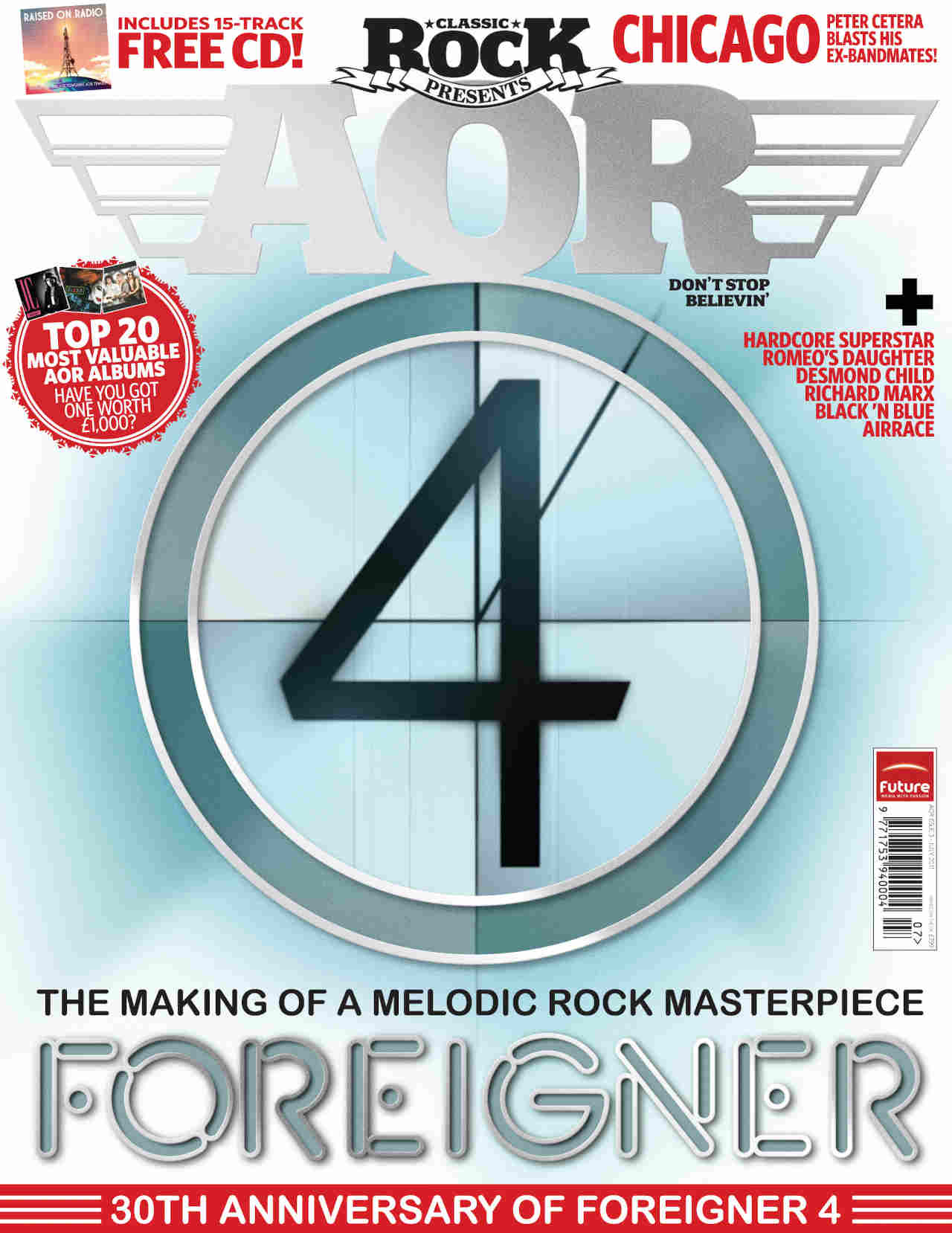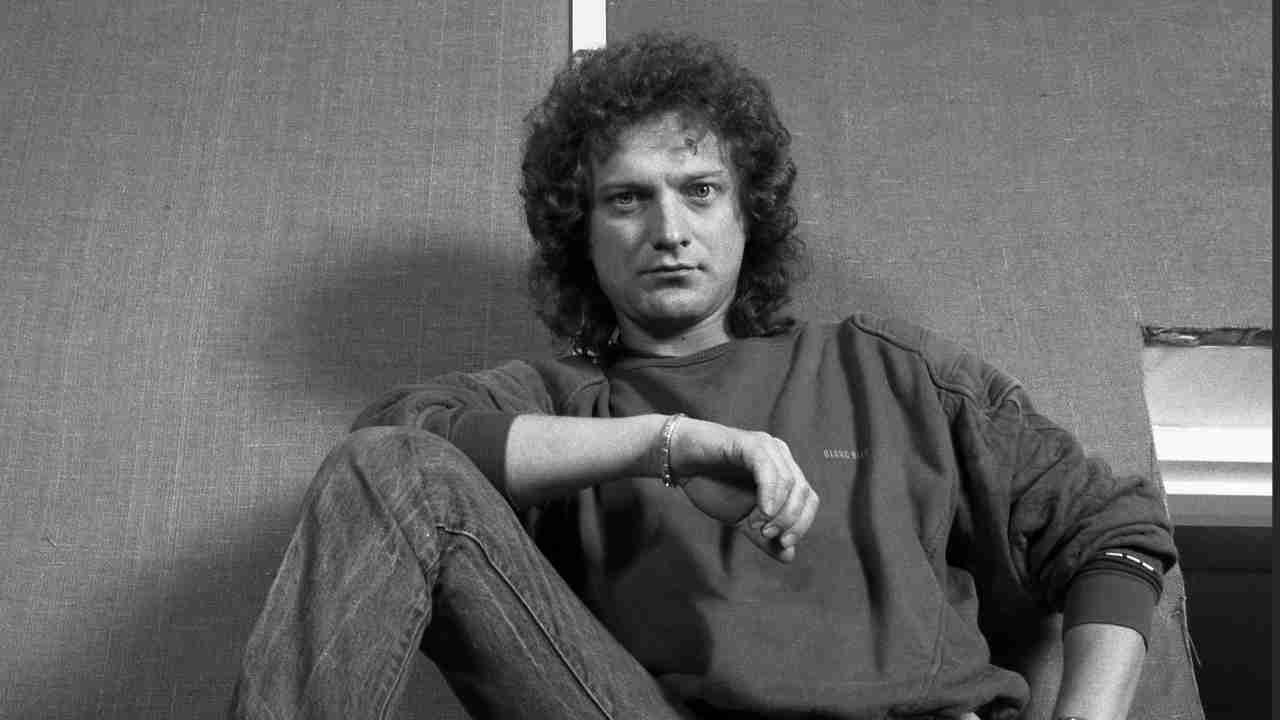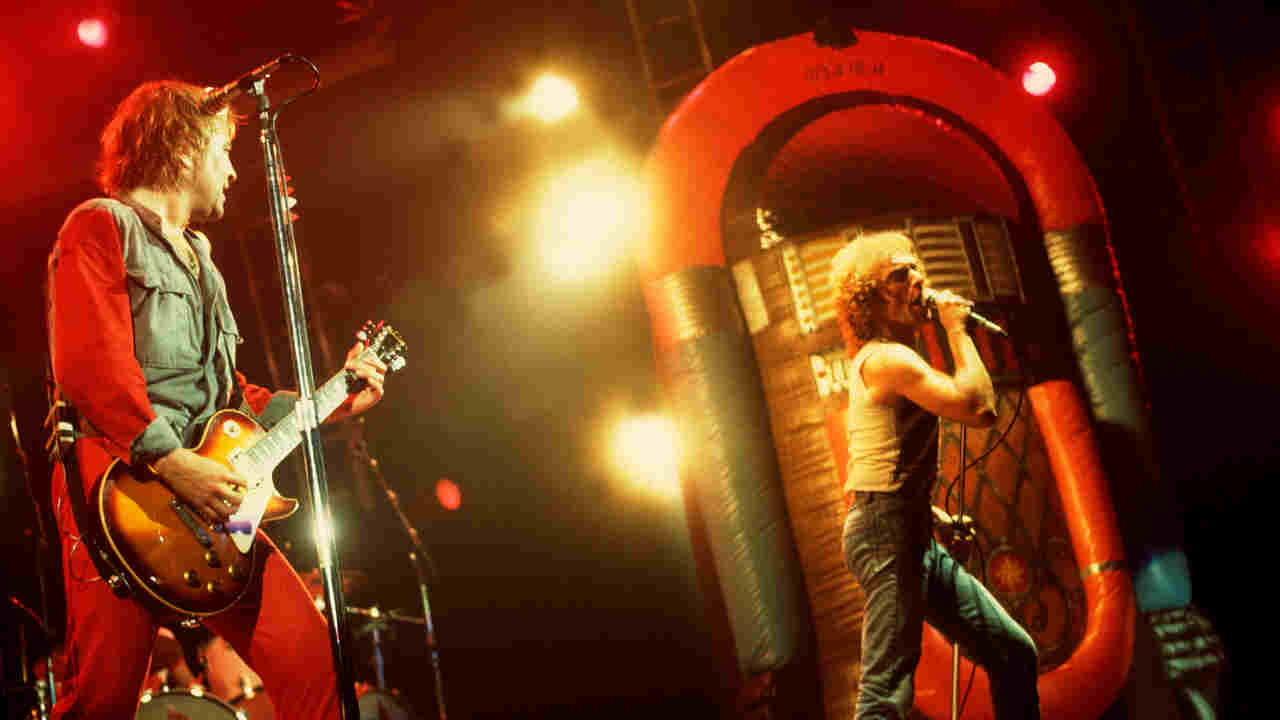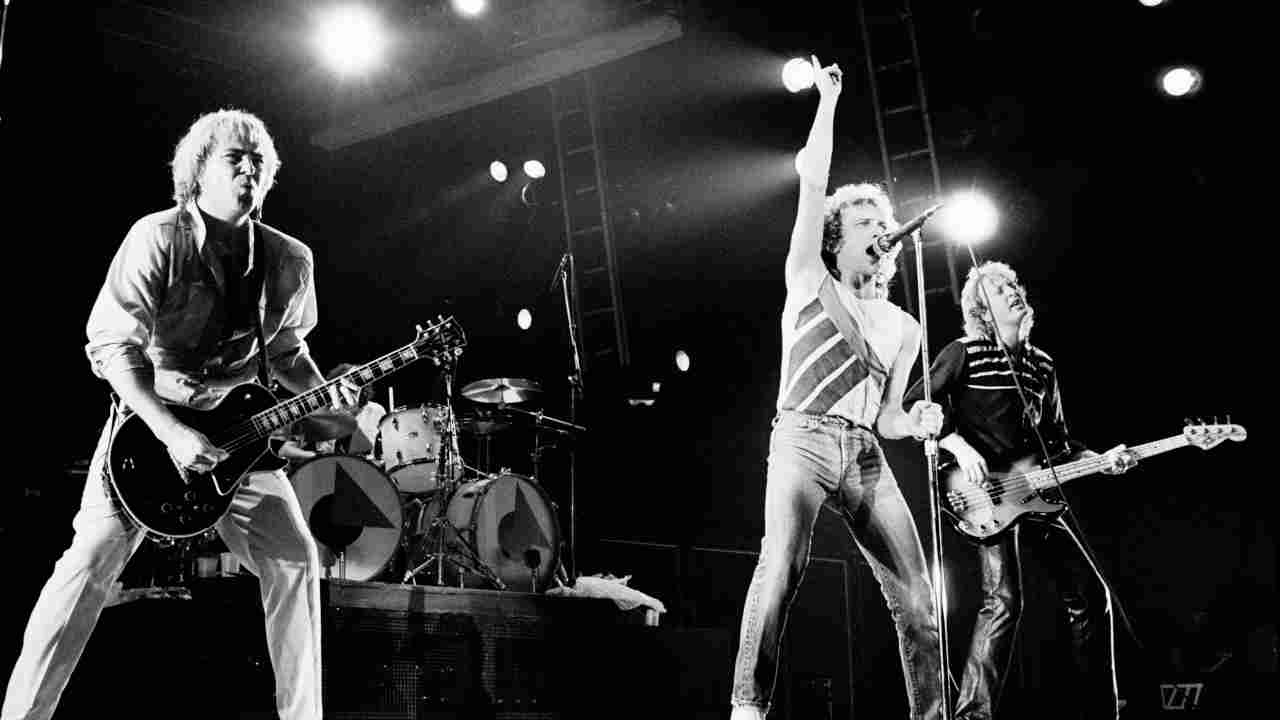Together with Journey, Anglo-American superstars Foreigner outlined early 80s AOR music due to 1981’s mega-selling 4 album. In 2011, the band regarded again on the making of a basic.
Six months into the infinite, ever-expanding time-frame that was the making of Foreigner’s fourth album, producer Robert John ‘Mutt’ Lange determined he wanted a break.
Wanting up from the blending desk in Electrical Woman Studio, positioned at 52 West eighth Avenue in New York’s Greenwich Village, he yelled at these within the management room who, like he, had simply endured one more gruelling night-shift and missed one more dawn.
“What the fuck are we doing right here? We have to go out! We by no means exit! We have to go to Central Park… Let’s go purchase some Frisbees!”
With the band having lengthy left the studio, Mutt’s outburst would solely have been witnessed by his shut coterie of engineering employees, and a younger, then-unknown keyboard participant named Thomas Dolby who had lately been drafted in for the classes.
All of them had been startled, however took their cue and adopted Mutt up the steps and out on to West eighth Avenue, blinking within the morning sunshine. He hailed a yellow cab and ordered it to attend exterior fifth Avenue’s legendary toy retailer FAO Schwarz whereas he purchased quite a lot of Frisbees, then leapt again within the cab and instructed the driving force to take all of them, laughing, to Central Park. For what Dolby remembers as a really joyous 5 minutes, they raced in regards to the park, flinging the colored plastic discs round like excited schoolchildren excessive on life. However, after these 5 minutes, the actual Mutt Lange resurfaced…
“What the fuck are we doing right here? We’ve obtained an album to make!”
With that, he led all of them away, hailed one other yellow cab and raced again to Electrical Woman.
Foreigner’s guitarist Mick Jones hears this story for the primary time when Basic Rock Presents AOR meets him in his London resort suite in the course of the band’s latest European tour. He could be unfamiliar with this particular story, however recognises it instantly as indicative of what he describes because the producer’s “intense” dedication to the work. Jones recognises it, after all, as a result of it mirrors his personal, and explains why the album took so very lengthy to make. How lengthy?

“It took about 10 months, counting pre-production… perhaps one of the best a part of a 12 months,” Jones shrugs, stating that the group’s 1977 debut LP had taken 9 months, their second, 1978’s Double Imaginative and prescient “about six months”, and their third, 1979’s Head Video games, “in all probability virtually the identical once more”. So Foreigner had kind in that division. However 10 months? The very best a part of a 12 months?! Wasn’t that some form of report on the time? Apparently so…

“I keep in mind I used to be in a membership in London and Simon Le Bon got here as much as me and stated, ‘I hear we’re within the working for the prize for spending essentially the most money and time in a studio!’,” grins Jones, not slightly ashamed as properly. “Sadly, we did share that distinction…”
The Frisbee tour was not a major issue, then, in Foreigner 4’s prolonged gestation. The true cause was Jones and Lange’s 100 per cent dedication to creating completely one of the best report doable, and refusing to cease till they had been positive that they had. For each males, that meant reaching a brand new stage of excellence within the songs.
Jones: “The songs are the premise of the whole lot. They all the time had been with this band. I all the time got down to make albums that you may take heed to from starting to finish, with out filler…”
The statistics for Foreigner 4 show that each one the hours, days, weeks and months within the studio, all of the deadlines missed, all of the budgets damaged, had been finally price it.
The album loved 10 weeks (in three spells) at No.1 within the Billboard charts, beginning on August 22, 1981 and ending February 11, 1982. American gross sales exceeded six million. It stays the band’s finest vendor within the UK, reaching No.5, and incomes a gold disc, whereas it additionally made No.4 in Germany. Of the six songs launched as singles within the US, solely the final – Luanne, in 1982 – did not go Prime 30.
Maybe most significantly of all, 30 years later all 10 of those songs nonetheless resonate strongly.

Money and time are relative. As is failure.
A little bit of context is required. Foreigner had been a hit proper out of the field: Stateside, their self-titled debut of 1977 offered 5 million copies and reached No.4. A 12 months later, their second effort, Double Imaginative and prescient, made No.3 within the US – even climbing to No.32 within the UK – and shifted seven million copies. So when third album Head Video games, launched in 1979, stalled at No.5 on the Billboard chart and solely went quintuple platinum, one thing was deemed to have gone mistaken.
Jones: “That did begin the considering, that we wanted to be optimistic about our identification for the fourth album. Okay, we’d crushed the jinx of the primary album being a flash-in-the-pan with Double Imaginative and prescient being so sturdy, however I feel on Head Video games we actually went into ‘extreme mode’. The medicine got here into the image a bit an excessive amount of there. So we form of had a large hangover after that album [laughs]. I look again on it and assume it wasn’t fairly centered. We tried to toughen the picture of the band up with Soiled White Boy and Head Video games itself, however that’s the place the query about the place we had been going originated…”
English bassist Rick Wills – who had joined the line-up for Head Video games, the previous Peter Frampton band/Roxy Music member having changed New Yorker Ed Galgliardi – had just a few issues. “In some methods, after the primary two Foreigner albums, Head Video games was one thing of a departure in model and kind,” he says. “It was a bit extra heavy and rocky, and that didn’t go down so nice with everybody. And, after all, we had that very controversial album cowl…”
It featured a lady caught within the act of wiping her telephone quantity off a gents’ bathroom wall, however it was perceived by some as one thing extra provocative. Quite a lot of American report shops refused to rack it.
“I feel we offered loads much less of that album for that cause alone,” Wills continues. “It did very properly, however by Foreigner requirements it was thought of one thing of a failure. Having simply come into the band I used to be considering, ‘Bloody hell – this doesn’t bode properly for my future!’”
Jones was eager about the long run, too, however Wills wasn’t the one who wanted to fret. The guitarist and band-leader was extra involved that the calls for of keyboard participant Al Greenwood and ex-King Crimson multi-instrumentalist Ian McDonald to be included within the songwriting course of would weaken the band. Greenwood was dismissed first, McDonald adopted quickly after (years later, when the band reconvened in mid-2010 to rehearse some new songs, McDonald was current, however the line-up was quickly pared once more all the way down to 4).

Wills: “I hadn’t anticipated this. Mick had stated to me he needed extra freedom to carry different musicians in, to experiment – particularly with keyboards – as a result of this was the period when individuals had been starting to do wonderful issues, electronically. Mick – who was by no means one to face nonetheless – needed to attempt this stuff out, as a result of he thought that was the best way ahead.”
Jones: “It was a troublesome time, emotionally. Ian was an in depth buddy, however Lou [Gramm, singer] and I simply felt we had hit our stride writing collectively and we needed to actually begin to maximise on that. We talked at size about it and had a reasonably clear imaginative and prescient of the place we needed to go, so it was a query of being a bit ruthless. We felt we needed to focus.”
One of many songs that was serving to them focus was a ballad.
Wills: “Mick tended to write down many of the songs on a piano, utilizing largely the black notes, so the whole lot was in sharps and flats, and little bit bizarre when it got here time to transpose them to the guitar… As I recall, it was pretty bitty at first, however the one track he did have utterly completed was Ready For A Lady Like You. The primary time they performed it to me, I stated, ‘Effectively if that isn’t successful, I don’t know what’s!’”
Jones’ voice bears a tremor of emotion as he recollects the genesis of that track: “Ready For A Lady Like You virtually wrote itself. That was the primary time I had a very critical emotional expertise. It was overwhelming. From the second we put down the essential monitor and Lou added a scratch vocal, I discovered it exhausting to be within the room with out breaking down in the course of the playbacks. It was such a wierd sensation. I actually obtained the sensation that one thing was coming down by way of me, that I used to be simply the conduit. It was the primary time I’d obtained in contact with what I’d heard different writers or artists discuss.”
That track would, after all, change the whole lot – however so would the band’s alternative of producer. Jones had taken each co-production and ‘musical course’ credit on the primary three albums – by no means lower than totally concerned – however was additionally eager to achieve a revered second opinion on a track (or third, if it was one co-written with Lou Gramm). The person chosen was Robert John ‘Mutt’ Lange (rhymes with “hanger”), a person referred to as Mutt who was the massive canine in rock manufacturing on the time, having steered AC/DC to consecutive multi-platinum successes with Freeway To Hell and Again In Black.

Jones, although, had been a fan of his for a while: “Mutt first caught my consideration when he produced a band known as Metropolis Boy, manner again [Mutt produced City Boy’s first five albums, starting with 1976’s self-titled debut]. I’d been impressed by the work he’d achieved on that band. And he had utilized to do the Head Video games album, really. He came to visit to New York to see me, however it was only a query of dangerous timing for him, so we selected Roy Thomas Baker. However Mutt was all the time at the back of my thoughts, so when he reapplied for the fourth album, that was it.”
Lange later grew to become legendary for his painstaking, specific note-by–word work with Def Leppard, however was nonetheless a comparatively unknown amount to Jones, who insists he was unaware such strategies could be used upon Foreigner.
“I knew that he was actually into sound, that he was devoted and he was very critical,” says Jones. “He actually confirmed unimaginable enthusiasm.”
The primary proof of that enthusiasm got here in the course of the pre-production stage when, having heard the songs that the band felt had been able to be recorded, he requested to listen to the concepts that Mick thought of unfinished. It was not one thing the guitarist felt comfy doing, inviting this stranger into his hitherto-private world of taped bits and items.
Mick says Lange “compelled his manner into” this non-public world. “It was the primary time I’d ever let anyone in there,” he provides. “In some circumstances, he was listening to stuff I believed was embarrassing. However he needed to listen to each single factor I had, even when it was solely a 10-second snippet.
“Out of that course of, we put Pressing collectively. It started as simply an instrumental passage I had, the factor that grew to become the intro. However I didn’t know what I used to be going to do with that. I believed it would grow to be some form of bizarre instrumental.
“Mutt additionally helped put Juke Field Hero collectively. It was initially two separate songs. Lou had one concept known as Take One Guitar, and I had the Juke Field Hero factor. Mutt helped us to gel the 2…”

Mutt’s contributions are overtly acknowledged, however not recognised with the co-writing credit he later acquired with Leppard. It appears protected to presume he was handsomely rewarded, though Mutt isn’t obtainable for remark. The person who Jones, with a smile and no small diploma of understatement, describes as “a little bit of a recluse”, has made just one important public assertion within the final couple of a long time: “I’ve all the time been a personal individual. I don’t worth being within the media highlight. I’m lucky to have the ability to keep away from it.”
English engineer Tony Platt, a person who labored with Mutt on a lot of albums earlier than Foreigner 4, provides a first-hand view of his strategies, and insists the producer is all the time artist-led. “One among Mutt’s absolute abilities – and it’s an distinctive expertise – is insisting upon getting the songs proper,” Platt says. “And he desires to get the songs proper earlier than you go into the studio, so that you’re ranging from a really sturdy perspective. Actually, the Foreigner 4 album obtained put again a few occasions, as a result of Mutt didn’t really feel the songs had been in fairly the precise form. Even after I went out to theoretically start recording, and so they had been nonetheless in pre-production, I ended up hanging round in New York whereas they had been finding out a few songs.
“Then we took them into the studio and began getting sounds. That will undoubtedly recommend different adjustments that they could need to make within the association of the track, strengthening the sound. The sound can then transfer additional ahead – and at a sure second, we take a snapshot of it after which they may say, ‘That’s the way it ought to be. That’s the second in time that this track ought to inhabit.’ Mutt was all the time excellent at selecting that second, completely.”
Historical past has confirmed Mutt’s infallible sense for what makes successful report. However what was it like on the opposite facet of the management room window?
Jones shrugs. “Mutt was intense. He was intensely devoted to it, as properly. We had our variations, you already know. We had been like two goats – cussed – and we locked horns just a few occasions…”

At some extent that even the meticulous Platt can solely recall as “late summer season/early fall 1980”, recording lastly started in the identical studio the place Head Video games had been recorded: Atlantic Studios, on New York’s Higher West Aspect. Nevertheless, it could show to be a false daybreak.
Platt: “It was a studio through which quite a lot of excellent issues had been achieved, however it had seen higher days at that cut-off date. Atlantic had air-conditioning items that buzzed, and there have been desks that had been slightly bit bizarre, so after a few week in there we simply determined we needed to go some place else.”
They’d find yourself at Electrical Woman, the legendary recording studio in Manhattan’s Greenwich Village that Jimi Hendrix had inbuilt a basement he’d initially purchased to show right into a nightclub. His earlier plan to make it a ‘curvaceous’ area with no proper angles faltered, however as a studio it has endured. Jones had labored there in Spooky Tooth. Lange had used it for Again In Black.
Platt: “Each Mutt and I had been very completely happy at Electrical Woman, so we decamped and went there. Studio A is a giant room. It nonetheless has the murals on the wall that had been achieved when Jimi first purchased it. It’s an astonishing area. It has quite a lot of vibe to it.
“So we arrange… We created a big space for the drums, with a giant display screen arrange for the bass. We constructed a room throughout the room for the guitar amps. I needed to get as a lot separation as I may, however inside a rock context – as a result of I knew quite a lot of stuff could be changed. And Lou sang all his vocals within the vocal sales space that was already there. It was fairly a big sales space – and that grew to become his house for on a regular basis we had been there! He saved bringing issues in and making himself extra comfy.”
However first issues first, and that meant recording Dennis Elliott’s drums.
“Mutt had needed to go the digital route with the drums,” remembers Jones. “That didn’t sit properly with me or with Dennis. That was a little bit of a bone of rivalry!”
Wills: “I keep in mind for 3 days Dennis was simply hitting snare drums. He lastly obtained up and stated, ‘Hear man, I can fucking play drums. You possibly can’t even get a sound!’ He was actually offended [laughs].”

Jones: “Mutt additionally needed to make use of a click on monitor for timing, and Dennis took offence to that, as properly. When he and I had been engaged on the track Break It Up, we obtained so fed up that, at one level, we simply stated, ‘Fuck this!’ and went into the studio collectively. I sat on the piano, Dennis sat on the drums, and we laid down the essential monitor, simply him and me. Then we turned spherical to Mutt and stated, ‘Okay? Blissful now?!’ We needed to show the purpose that this band may play and hold time, too.
“I assume I needed to remain extra old-school than Mutt,” Jones muses. “He was all for going forward and utilizing the know-how that was arising at the moment – as you may hear on his Def Leppard albums, the drums there are digital, they’re synthesised… However I didn’t need to go that route. It wouldn’t have labored for us.”
As we speak, Dennis Elliott – now retired from the music enterprise and answering a brand new calling as a wooden sculptor – appears reluctant to re-live all this, however recollects that his working life was easier on the group’s earlier albums. “I used to be often achieved with the drum tracks throughout the first two weeks, and the songs had been then constructed upon these tracks.”
Elliott is a eager sailor, and in the course of the classes for Foreigner 4 he would moor his boat at a basin on the Higher West Aspect, the place he lived together with his spouse Iona. The basin being a comparatively brief drive from Electrical Woman, members of the band and Mutt would usually step aboard after a day within the studio, to unwind and benefit from the views.
Elliott, who may ordinarily have anticipated to be hitting the ocean by this level within the classes, recollects: “I couldn’t actually go too far, and it did appear to take an eternity. Generally a track would undergo so many adjustments throughout that point, it was obligatory for me to come back again in and begin throughout… I’d cease by the studio each week or two to see what progress was being made – however on the Foreigner 4 album, they all the time gave the impression to be enjoying foosball!”

Generally referred to as desk soccer on this facet of the Atlantic, Platt recollects that he and Lange put in the foosball desk at Electrical Woman. “We purchased a desk and put it behind the studio so, on the finish of the evening, we’d all unwind round it. We’d get the beers or the wine out, and have a match.”
Wills: “Each time there was any downtime, we’d go on the market and play on the foosball desk. All of us obtained good – and obtained ferociously aggressive about it. Particularly Mutt…”
Platt insists he was the foosball champion – “Someplace I’ve obtained the trophy, a miniature Converse sneaker” – which Jones confirms. However, as Wills observes, “at $2,000 a day, it was fairly an costly pastime!”
Based on the bassist, little or no work gave the impression to be getting achieved. “It was exhausting to get the gist of the place we had been going to go together with this album, as a result of after nearly each session, there could be this lengthy dialog, between Mick and Mutt, about the place we had been going with the album and what was wanted. If Mutt’s something, he’s a perfectionist. He doesn’t let something slide, gained’t let something previous him except he thinks it’s adequate. And Mick Jones is fairly related – so boy the 2 of them did lock horns just a few occasions. It was robust!”
Everybody agreed, although, on Ready For A Lady Like You.
Wills: “That was one of many first songs we recorded – saved and achieved as a second take! It sounded fabulous. Everyone’s efficiency on it sounded nice and we knew we had that within the can.”
“Ready For A Lady Like You was Lou’s unique stay vocal,” says Platt. “That was a kind of tracks the place I keep in mind the recording session very, very clearly. We put down a primary washy keyboard within the background, with the primary monitor. There was some modifying in between takes… And as soon as we’d chosen the grasp and achieved all of the edits, I keep in mind sitting there until about three o’clock within the morning, and everybody was nonetheless saying, ‘Oh, play it again once more, play it once more!’ There was a common feeling that this was going to be the massive hit…”
What nobody appreciated whereas listening to Ready For A Lady Like You, nevertheless, was that Gramm was not going to have the ability to replicate its unimaginable refrain stay.
Jones: “In hindsight, I’d say Mutt actually pushed Lou, in all probability previous his vary. I used to be there as properly, so I’ve to take a little bit of… I don’t learn about blame, as a result of all of it labored out as all of us needed it to work out. However in hindsight, Lou did have quite a lot of problem with the pitch and the vary of a few these songs. Juke Field Hero was one other track that strained his voice to the restrict.”
Wills: “Lou may sing it within the studio, however he couldn’t reproduce it stay each evening. We really used to do it a semitone down from the report. We used to detune – we had separate guitars for that track. Identical with Juke Field Hero. It was simply an excessive amount of for Lou to do. It led to some form of mind-games occurring between him and Mick about performances and stuff. That’s how the entire thing began to disintegrate in a while in our careers, actually, with Lou not with the ability to actually deal with the calls for.”
On the time, although, Wills reckons the singer was unfazed by most of what was occurring: “He simply handled it in Lou’s manner – very quietly and subdued. Though he was very a lot concerned within the writing facet with Mick, when it got here to the recording he would make recommendations, however just about let Mick and Mutt run the present…”
That present was steadily working across the clock. They could take the occasional break day, however recording was turning into a lifestyle.
Wills: “Electrical Woman grew to become our second house. We initially started classes at noon, however three months later they’d gone on so lengthy that we had been beginning at midnight.”
Like Dennis, Mick and Mutt had been holed up within the metropolis. Lou Gramm and Rick Wills had been commuting from their properties in Westchester County – about 45 miles, or a 45-minute drive, from Manhattan. This was “no massive deal” in response to Wills, who prefered to “return to his house and his household each evening. Or no matter hour it was. Generally I’d get again at 6am, simply as they had been getting as much as go to highschool… It was fairly weird!”
Their shifting schedule finally led to the lyrics for one in all Foreigner 4’s songs. Close by the studio, on the nook of Sixth Avenue, there was a Nathan’s Well-known scorching canine eaterie, as Jones recollects: “The later it obtained at evening, the larger the thrill obtained, and quite a lot of bizarre characters, a few of them hookers, would seem. It was a giant combination of quite a lot of completely different characters – in order that was the inspiration for opening track, Night time Life.”

Nevertheless, the prolonged studio hours had been taking their toll financially.
“On the time it was thought of unrealistic,” says Wills. “We’d spent over 1,000,000 {dollars} in recording prices. There was quite a lot of stress – from the report firm, from the administration and from ourselves. It was fairly robust. Our supervisor, Bud Prager, was going loopy, having to maintain going to Atlantic for an increasing number of advances, simply to pay for the studio time. As a result of when you’ve obtained that far into it, you may’t flip again, and you start to grasp that you simply’re going to must promote a hell of quite a lot of information to pay that advance again…”
Steadily, although, nice tracks began to emerge, together with songs like Pressing, which had barely existed when classes first started, and was, at one level, stripped proper again to Elliott’s drum monitor and that quirky guitar intro.
The track, nevertheless, is made by the sax solo performed by the late, nice Junior Walker. Jones noticed Walker and his All-Stars had been enjoying in a membership close by, so he and Wills skipped out of Electrical Woman, watched three or 4 units, after which invited a bemused Walker all the way down to the studio.
Elliott and his spouse made positive they had been there to see the soul legend in motion. “It was very amusing,” remembers Iona, “as a result of after he performed his solo as soon as, he was very proud of it, however Mick made him play it a number of extra occasions, and was making an attempt to get him to stretch out an increasing number of, till it grew to become that fantastic solo.”
“It turned out that in all his profession he had by no means achieved an overdub,” provides Jones. “Every little thing he’d ever achieved was stay. So the primary 5 – 6 takes, he was actually uncomfortable. He had the headphones on, however couldn’t get used to that undeniable fact that he was overdubbing. However he did, after some time, and began enjoying some stuff. He defined, ‘I’ve form of modified my model up a bit…’ and began enjoying this jazzy, softer sort of stuff. Mutt and I had been sitting there considering, ‘Oh, no, we’d like the Junior Walker we all know and love.’
“Mutt, bless him, went and straight-talked it to Junior: ‘That is nice however we actually want a few of that Shotgun/Street Runner stuff.’ ‘Oh, you need the previous shit? Okay!’ So he will get up, does it once more and in two or three takes we’ve obtained it. Nevertheless, it did take an amazing quantity of modifying. Mutt and I spent two days chopping up little slivers of quarter-inch tape from the completely different takes, after which splicing all of it collectively. We needed it to be a basic solo, and I feel that’s the way it ended up…”
It’s tempting to color Lange because the villain of the piece, however, because the Junior Walker story exhibits, Jones was simply as a lot a perfectionist. As we speak, he concedes: “We had these moments with Mutt, however we form of overcame it. Nothing lasted longer than the time it took to attain what we’d got down to obtain. Regularly, issues eased up with Mutt, and we actually began to understand what we had been all bringing to the social gathering. He loosened up from his extra ‘stiff’ method.”
After three months, nevertheless, Platt needed to go away. He’d stalled a previous engagement to re-mix Samson’s Shock Techniques LP, however may delay the mission now not.
Platt: “I’d converse to Mutt every now and then, after all. If he ever had any questions on something I’d achieved, he’d simply name me up. It was all recorded in 24-track analogue. These tapes already had quite a lot of edits in them, so that you wouldn’t need to hold enjoying them. The traditional apply in these days was to make up a slave reel from the grasp reel so you may do all of your overdubbing on the slave reel – you then would lock the 2 collectively while you did the combination, so that you wouldn’t be degrading the sound on the grasp reel, by enjoying it again and again. So earlier than I left I made up all of the slave reels and checked the whole lot was proper earlier than I left.”
The opposite factor Platt did earlier than leaving was advocate his alternative, Dave Wittman, the person who would carry the torch as Lange’s right-hand man to the very finish of the mission.
Preliminary classes had seen Platt report keyboards by Peter Frampton’s Bob Mayo, someday Lou Reed man Michael Fonfara, and Larry Quick from Peter Gabriel’s band. However Mutt and Mick needed one thing extra. They went after a then-unknown Englishman by the title of Thomas Dolby, who might be discovered busking in Paris, avoiding a UK music lawyer’s invoice he couldn’t afford…

Dolby: “I obtained a name from a buddy in England who stated, ‘Someone known as Mick Jones phoned for you and stated he needed you to do a session…’. I believed this was Mick Jones of The Conflict, who had been one in all my favorite bands on the time. I’d really by no means heard of Foreigner. However after I regarded into it, it turned out that they had been really very massive in America!”
Lange, a companion in Zomba Publishing, had heard one of many 22 12 months previous’s demo cassettes and appreciated his keyboard enjoying, so, in mid-January 1981, he urged to Mick that they need to examine Dolby out.
“I spoke to them from Paris and so they urged I ought to check out for a day or two and requested, ‘When may you come over?’,” remembers Dolby, of the preliminary contact. “I believed very exhausting and stated, ‘Effectively, tomorrow morning!’
“Mutt was actually sticking his neck out in insisting that they employed me and fly me over. I used to be a child who had beforehand thought himself fortunate to have spent 4 hours in a recording studio. I used to be like a bull in a china store – ordering up all kinds of keyboards and results, from a listing like a takeaway menu.
“They’d already put keyboards on many of the album, however they weren’t very proud of them, in order that they gave me a trial to see what I may do. The primary monitor they gave me was Pressing, and so they had been more than happy with that in order that they requested if I may stick round and do the entire album.”
Principally, Dolby’s contributions consisted of very delicate keyboard arpeggios, doubling each word Mick Jones and Rick Wills had performed.
Mutt may then add one more layer to the combination however, as Dolby explains, “he’d make it very, very quiet, so you may hardly hear it. That will simply make the guitar enjoying sound higher… I feel I used to be on just about the entire album.

“Ready For A Lady Like You was clearly the centrepiece of the album, however they had been nervous about it, as a result of they weren’t actually referred to as a ‘ballad band’. However they had been additionally very assured about it, and Mutt Lange, particularly, was completely satisfied it could be the most important hit they’d ever had. He stated, ‘I actually need to make this outstanding. Each time this comes on the radio, I need individuals to prick up their ears and know precisely what they’re listening to.’
“I used to be very closely influenced by Brian Eno and his ambient stuff, and I had a mode like that. This was within the days earlier than polyphonic synths that allowed you to play chords. Again then you may solely play one word at a time, however you may construct up chords on a multi-track by enjoying lengthy single notes and layering different notes above and under them. It will range the sound a bit, and also you’d find yourself with a pleasant mesh. So I recorded a couple of minutes of that, and Mutt got here in and took a slice of it – perhaps 25 seconds or so – and spliced it into the entrance of the track. And it labored relatively properly!
“I keep in mind, a few years later, I’d be driving in center America someplace, listening to some AOR rock station, and this sound would come on. It was completely unmistakable. I felt it was fairly subversive, actually, to get some ambient Eno music on to American AOR radio!”
For Dolby, who to that time had “barely made a penny” as a session musician, one month’s work modified his life. “I got here again from the States with an envelope full of money, which I used to make my first album, so the proceeds from Foreigner 4 set me up. By the point Ready For A Lady Like You got here out, then instantly I had all kinds of choice for different work…”
Regardless of that money – which led on to his 1982 debut album The Golden Age Of Wi-fi, and early hits Windpower and She Blinded Me With Science – Dolby recollects that “they had been making an attempt to not break the financial institution, so I really stayed in Mutt’s resort suite on Central Park South. It had a pull-out sofa in a second room, and I slept on that for the primary week or so. I do not forget that Mutt would go away for the studio within the morning, earlier than I awoke, and infrequently wouldn’t get again till after I used to be asleep. The person slept, like, 4 hours an evening! And but he nonetheless discovered time to take a seat cross-legged on his mattress, enjoying guitar and singing like Van Morrison. Actually extraordinary. He was a really fascinating man…”
By the point Dolby arrived, Foreigner had been in Electrical Woman about six months however had been, it could transpire, solely two-thirds of the best way by way of the method. “They’d work in the course of the day on vocals and mixing, and at evening I used to be let out within the studio till they got here again in at 9 o’clock within the morning.”
Jones: “We might give him a load to do, then exit to dinner and simply go away him there. Then we’d come again to listen to what he’d placed on…”

The painstaking work continued with some uncommon distractions. Subsequent door to Electrical Woman is an art-house cinema known as the eighth Avenue Playhouse. After a late-night displaying of The Rocky Horror Image Present, one of many punters had inadvertently left his seat gently smouldering. Some hours later, smoke was seen pouring out of the cinema; subsequent door, in Electrical Woman’s management room, Mick Jones may scent one thing burning.
“We thought at first the fireplace was on our facet,” he remembers. Nevertheless, ideas of numerous hours of labor being misplaced had been instantly interrupted by a loud banging on the wall.
Dolby: “Abruptly members of the New York Fireplace Division got here by way of the wall of the studio with axes. They had been very massive, beefy guys, and all I may assume was that they regarded just like the Village Folks…”
Electrical Woman survived the intrusion and work resumed. Quickly, Dolby’s work was achieved and he flew house. However for Jones and Lange, stress was constructing. Their time at Electrical Woman was about to hit a brick wall as the following consumer, Corridor & Oates, refused to budge once more. Worse, Mutt’s reserving to provide Def Leppard’s Pyromania had additionally been put again for the final time. Finally, he merely needed to let go of Foreigner…
Jones: “Mutt stayed completely so long as he may. It was gut-wrenching for him when he needed to go away, however he needed to… Def Leppard was already three or 4 months over-schedule. We’d been by way of this intense time collectively, one of the best a part of 9 months, so it actually was gut-wrenching.”
With Mutt out of the studio – although nonetheless in contact on the telephone, and listening to mixes couriered throughout the Atlantic – Jones ended up including the ultimate touches, mixing and sequencing with engineer Dave Wittman. This lasted round 4 weeks, from March by way of to April. With simply 10 days of studio time remaining, Jones took the drastic step of taking a mattress into the studio and sleeping there relatively than lose focus.
Jones: “We’d obtained into this factor the place the studio was like my den. I didn’t even go exterior.”
Wills: “He was virtually going mad, really!”

Come the ultimate seven days, Jones and Wittman reckoned they nonetheless had 10 days of labor to do. With “Corridor & Oates’ roadies within the hall delivering their gear”, they had been finishing the ultimate track. In the meantime, Lange and Prager opened what was purported to be the ultimate mixture of Foreigner 4.
Jones: “I get this name from Mutt, and he says: ‘The place are the fucking background vocals on Juke Field Hero?!’ Then my supervisor known as up, asking the identical factor: ‘The place are the background vocals?!’”
Jones admits he had eliminated them on function: “It was some ridiculous concept I’d had… I attempted to clarify this as a inventive choice, however they each stated I used to be loopy and insisted I put them again – at which level I realised I’d made the mistaken choice, someplace in these final 10 days of insanity.
“So I am going see Dave and say, ‘I feel we could have fucked up, right here! How can we repair it?’ He simply stated, ‘Don’t fear!’ and rushed again in. Juke Field Hero was so intricate that we’d used each single cable and each single piece of kit within the studio. Dave and I had all 4 fingers on the desk. Inside two hours, he had re-established the set-up – all of the gear, the cabling, the faders, the whole lot and remixed the entire refrain part of the track once more. It was simply his recall from a very completely different combine. And by some miracle it fitted again in – with just a bit little bit of stage adjustment – the choruses and the remainder of the track are from two completely different mixing classes. It was miraculous. And that was the very last item we did!”
A fittingly fraught ending to the marathon course of, a stroke of luck that was properly deserved after all of the exhausting work earlier than. The band took the songs out on the street… and the remaining is rock’n’roll historical past. Requested to replicate on Foreigner 4 at this time, Jones pauses thoughtfully earlier than answering. “It was undoubtedly the sum of what I believed we’d been constructing in direction of. After I look again on it I do know it’s my favorite album. I do know the method was lengthy, gruelling and dear – pricey not simply financially, both. Relationships obtained strained throughout that album. Home conditions obtained uncontrolled. There was quite a lot of depth concerned in that. However wanting again it’s the one I all the time say I’m in all probability essentially the most happy with.”
Initially revealed in Basic Rock Presents AOR journal subject 3, July 2011

